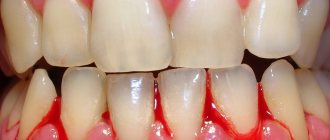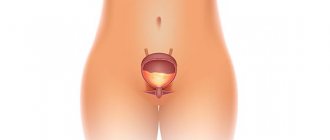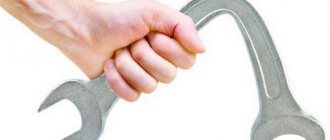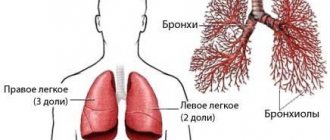What is snoring and how does it occur?
Let's consider the mechanism of the occurrence of loud, intrusive sounds that a person makes during sleep. When we go to bed, we don't stop breathing. The air passes through the nasal passages, then through the pharynx, after which it enters the trachea or bronchi.
Snoring sounds appear in the throat. In order for a person’s pharynx and larynx to function normally and maintain respiratory function, the muscles, soft palate and its uvula must work in a coordinated manner. If a malfunction occurs, the person makes snoring sounds. This often occurs due to narrowing of the upper airways or decreased tone of the pharyngeal muscles.
When a person snores, the walls of the breathing tube collapse, as well as its partial obstruction. Vibration of the soft tissues of the pharynx and soft palate occurs. To put it simply, the airways narrow, and the soft tissues that are present in the pharynx beat against each other under the flow of inhaled and exhaled air.
Goodbye figure!
Obesity is another side effect of sleep apnea. Moreover, there is a vicious circle between excess weight and apnea. The accumulation of extra pounds is a direct cause of sleep apnea. The deposition of fat between the structures of the neck creates additional pressure on the pharynx, narrows its lumen and thereby contributes to the occurrence of respiratory arrest. Frequent pauses in breathing mean intermittent, restless sleep, during which a person experiences constant micro-awakenings. The structure of sleep breaks down. Deep sleep becomes shorter, and it is during the third stage of slow sleep that the hormone somatotropin is produced, which in adults is responsible for burning fat. As a result, less deep sleep means less growth hormone and more weight.
Click to enlarge
Causes of snoring in men and women
We have analyzed the mechanism of snoring. But what factors cause these changes in the body? Let's look at the main reasons why a person may snore.
Narrowing of the airways
Snoring is often caused by narrowing of the airways. These changes occur due to a number of diseases or birth defects, but sometimes bad habits can also be the cause:
- trauma to the nose, which resulted in a deviated nasal septum;
- the appearance of polyps. These are benign growths that appear inside the nasal passages;
- swelling of the nasal mucosa as a consequence of rhinitis, ARVI and other diseases. Sometimes swelling of the mucous membrane occurs due to the fact that a person inhales smoke from cigarettes, which is why smokers snore quite often;
- swelling of the oropharynx caused by tonsillitis or tonsillitis;
- inflammation of the adenoids. Most often, babies snore because of this;
- overweight. If a person has grade 2 or 3 obesity, the lumen of the breathing tube decreases;
- congenital narrow breathing tube or deviated nasal septum. It happens that a person is born with narrow nasal passages, a deviated septum inside the nose, or he has an inappropriate length of the uvula.
- malocclusion, the lower jaw is smaller than the upper and seems to be pressed into the neck.
Decreased muscle tone of the pharynx
When a person goes to bed, his muscle tone decreases. However, these changes are minor, so their presence alone cannot cause snoring. Additional factors that cause excessive relaxation of the pharyngeal muscles contribute to the appearance of snoring sounds.
These include:
- sleeping pills (a person took medications that have a sleeping pill or sedative effect before going to bed);
- fatigue. Both physical and psycho-emotional stress can cause snoring;
- alcohol. Most often, men suffer from this addiction, but sometimes women also drink before bed. Alcohol relaxes all muscle groups, including the respiratory tract;
- endocrine diseases. If a person suffers from hypothyroidism, that is, he does not produce enough thyroid hormones, there is a general decrease in muscle tone in the body.
Hormonal changes in women: pregnancy and menopause
All of the above reasons occur in both men and women. At the same time, the fair half of humanity has another reason that can cause snoring - hormonal changes.
Thus, during pregnancy, women often begin to make characteristic sounds during sleep. Even more often, women who are over 50 suffer from snoring, since at this time they enter menopause.
Snoring during sleep in women: treatment
Today, there are many different ways to get rid of snoring. Depending on what caused this phenomenon, one or another treatment method is used. Remedies for snoring in women:
- Getting rid of the causes that most often cause snoring (extra pounds, alcohol, smoking).
- The use of a mouthguard, a special device that simultaneously holds the tongue and lower jaw in one position, which helps to get rid of snoring.
- Using the patch. This method is suitable only for those people who have some defects in the nasal septum area.
- Tablets, drops or sprays. Medicines should not be taken in large quantities to avoid side effects.
- Handcuffs with electric shock effect. This device is capable of detecting snoring and sending electrical impulses to the hand.
- Surgical intervention. In this case, doctors will help get rid of defects associated with the structure of the nasopharynx.
- Laser method. This method will help people with an enlarged uvula. The laser will reduce its size and the size of the palate, which will reduce vibration of the soft tissues.
- Exercises. Using a special set of exercises, you can train the lower jaw and muscles of the tongue, palate, which will help you get rid of snoring.
- Ethnoscience. Some traditional medicine can also help with this problem.
How to stop a woman from snoring using a mouth guard: instructions
- Using a special holder, place the mouthguard in a vessel with water at a temperature of 60-80℃ for 20 seconds.
- Carefully remove the device and shake off any remaining water.
- Insert it into the oral cavity and place it in the most comfortable position.
- Bite your mouth guard.
- Press the mouthguard on each side. Clear impressions of the teeth should appear on it, and it should take their shape.
- Remove the mouthguard from your mouth and place it in a container of cold water to fix its shape. Please note: the shape of the mouthguard should not cause discomfort. Therefore, if necessary, repeat the procedure from the very beginning to change the shape.
- When you go to bed, place a mouth guard in your mouth.
The timing of mouth guard treatment largely depends on the individual. Mostly they are at least a month long.
How to get rid of snoring in a woman's sleep using a patch
- In this case, you need to purchase a special patch used to get rid of this problem. It's very easy to use:
- remove one strip of plaster from the box;
- remove the protective coating;
- stick the patch on your nose so that it is not on the bridge of your nose, but on the wings of your nose;
- in the morning, after waking up, remove the patch from your nose;
- One strip of patch is designed for one use. One package can contain from 10 to 30 strips.
- This treatment method is safe and quite effective, but only in cases where a person has a stuffy nose and cannot breathe normally during sleep.
Treatment of snoring in women with medications
In this case, different types of funds are used:
- sprays;
- nasal drops;
- pills.
They can be purchased at any pharmacy, but before use, be sure to read the instructions and consult a doctor.
This method of combating snoring is considered the most ineffective. This is because medications are not able to eliminate the root causes of snoring. Medicines can only have a temporary effect. In addition, consuming them too often can lead to other health problems.
How to cure snoring in women using electric shock handcuffs
- You can purchase such a device at a pharmacy or order it from an online store. It works quite simply:
- cuff your hand;
- if vibrations occur in the tissues of the nasopharynx, the device will react and send a small electrical discharge;
- this discharge will not cause a person to awaken. After applying the charge, he will simply change his body position in bed.
- A small disadvantage of this method is that the handcuffs can pick up other vibrations. For example, if an airplane is flying over, then the device can also deliver a discharge to a person’s hand.
How to treat snoring in women with surgery
The essence of this method is that doctors eliminate anatomical defects through surgery. The following technologies can be applied.
- Radiofrequency ablation. This is one of the surgical methods, the essence of which is the use of radiofrequency energy or high temperature on soft tissues.
- Pilar implantation. In this case, lavsan strips are placed in the soft palate. This is done using specially modified syringes and local anesthesia.
How to combat snoring in women using laser treatment
- This method of treating snoring works most effectively in cases where a person has problems with the structure of the palate. In other cases, it is used quite rarely.
- In this situation, defects associated with the structure of the palate are eliminated using a laser.
- This method has many advantages:
- the operation is carried out quite quickly;
- anesthesia is used, due to which no pain is felt at all;
- the procedure is absolutely bloodless;
- there is no subsequent disability;
- effectiveness of treatment.
- Its only drawback is the cost. To completely get rid of snoring, 2-3 procedures will be required, but not all patients are able to pay for even one.
Is snoring dangerous to your health?
The fact that a snoring person interferes with the sleep of those who are in the same room with him is no secret. And for the sake of the peace of mind of your loved ones, you should get rid of it, but this is not the main reason for which you need to be treated.
Stopping breathing (obstructive sleep apnea syndrome)
Often snoring is the only sign of such a dangerous disease as obstructive sleep apnea syndrome. Its other signs: a headache, a person gets tired, his attention decreases, problems begin in his intimate life - are not as striking as intrusive “night” sounds that prevent others from sleeping.
When the disease develops in a person, a short-term cessation of breathing occurs during sleep, due to which the level of oxygen in the blood sharply decreases, which means that all organs and tissues of the body begin to suffer from hypoxia - a lack of oxygen.
If this is a mild form of the disease, then there are few such stops (from 2 to 3). In severe cases, there are up to 500 pauses in breathing during sleep - this means that a person holds his breath for 4 hours a night.
All this affects your well-being. A person cannot get enough sleep, wakes up in the morning exhausted and tired, then all day long he complains of fatigue, drowsiness, and headaches. It is difficult for him to concentrate, he begins to forget everything. If the disease is diagnosed in a man, it often affects potency.
It is very important to detect the development of apnea in time and begin treatment, otherwise the patient increases the risk of cardiovascular diseases. Hypertension, arrhythmia may develop, and sometimes the disease causes a stroke or heart attack. Even death in a dream is not excluded.
Normal snoring
Snoring is not always a sign of obstructive sleep apnea. At the same time, the reasons that cause simple snoring and the development of this dangerous disease are similar.
In a patient who snores without stopping breathing, the walls of the respiratory tract do not block the access of oxygen, but only vibrate, which is why air still passes through. However, much less is supplied than needed, which cannot but affect one’s well-being.
If it’s hard for you to get up in the morning, you constantly have a headache, you have no strength, you can’t get enough sleep, even if you go to bed on time, it’s possible that this is because your body is weakened because it couldn’t rest well at night.
Scientists from Italy have found that constant snoring causes destructive changes, which reduces a person’s mental abilities.
Diagnosis of snoring
What to do about snoring in women? If the pathology causes inconvenience to a woman and her loved ones, if the patient snores every night, and the snoring does not stop when changing position, this is a reason to contact a specialist to identify and eliminate the causes of the pathological phenomenon.
First of all, it is recommended to visit an otolaryngologist to exclude or confirm ENT diseases and abnormal structure of the nasopharynx in a woman. The doctor will perform an anthropometry procedure - an examination that allows you to identify the morphological features of the structure of the nasopharynx. An ENT specialist will also perform an examination using an endoscope (an optical research device).
After the examination, a laboratory blood test is usually prescribed. The analysis is necessary to determine the level of oxygen in a woman’s blood and monitor the hemoglobin in the red blood cell.
If a woman’s snoring during sleep is associated with age-related changes and hormonal imbalance, she should consult an endocrinologist. In addition, the patient will need an examination and recommendations from a therapist and pulmonologist. In some cases, patients suffering from rhonchopathy are prescribed polysomnography (a procedure that allows monitoring the state of organs and the brain during sleep).
After a specialist has determined why a woman snores during her sleep, she is prescribed individual treatment, which is aimed at eliminating the root causes of the pathology.
If the cause of ronchopathy is age-related changes in the body, the woman will be prescribed hormonal therapy. If neurological diseases are detected, a course of treatment from a neurologist will be required. If a woman snores due to allergies, the doctor will prescribe antihistamines to treat it.
How to treat snoring: what should you do?
Snoring is not the norm. You need to fight him. It is especially important to make a timely diagnosis for those who suffer from obstructive sleep apnea syndrome.
Visit to the doctor
If a number of signs appear (snoring, which is sometimes interrupted, headaches in the morning, fatigue, problems with memory and attention, increased blood pressure, and others), you should visit a doctor as soon as possible. He will confirm or refute the diagnosis by performing a polysomnography.
Even if the diagnosis of apnea is not confirmed, you should not refuse to let the situation take its course. How to deal with snoring in this case?
Quitting bad habits and sleeping pills, normalizing weight
There is no universal remedy for treating snoring, since much depends on what disease, pathology or habit caused it.
- The simplest way that helps many patients is to lose excess weight, since it can be the cause of annoying “rattling” sounds during sleep.
- Giving up bad habits is also useful: you should not abuse alcohol, and it is better to quit smoking.
- In addition, it is worth gradually weaning off sleeping pills if you are taking them.
If snoring is caused by congestion and swelling of the nasal passages, you should consult a doctor to treat the disease that caused the problem: allergies, rhinitis, tonsillitis. In some cases, to improve nasal breathing, you have to resort to rhinoplasty.
It can be treated!
Over the entire history of attempts to treat snoring, approximately 400 devices and devices have been invented. More than half of them appeared over the past 70 years. However, none has become a panacea for snorers.
Bracelets and pillows
Anti-snoring bracelets deliver a weak electric shock to the sleeper's skin when they detect appropriate sounds from him. This causes a micro-awakening of the brain, the person partially wakes up, changes his body position and stops snoring. It starts again - and the situation repeats itself. Such a bracelet is a kind of replacement for the elbow of a bed partner who pushes the snorer.
Sometimes bracelets help, but you need to understand that they will not eliminate the cause of snoring. The bracelet will have to be worn indefinitely. In addition, it still interferes with proper sleep: due to the stimuli of the device, sleep becomes intermittent.
Article on the topic
Silencer cushion. Scientists have come up with a new device to combat snoring. Electronically filled anti-snoring pillows work this way: when a person starts to snore, they change their shape (there is a network of air chambers inside them), slightly changing the position of the sleeper’s head. Sometimes this helps, but often a pillow is not enough: a person snores in any position of the body and head.
Operation
Some clinics offer to treat snoring and apnea through surgery to remove part of the soft palate. But the operation is effective only if it is performed according to indications. If a person does not have sleep apnea and at the same time has clear reasons for snoring in the form of enlarged tonsils, an elongated uvula or a low soft palate, then intervention will help him.
In other cases, the operation will not affect the condition of the respiratory tract in any way or will make snoring even more severe.
CPAP therapy
This device-based treatment method is used to treat moderate (15 or more sleep apnea stops per hour) or severe (30 or more stops) degree of sleep apnea.
A small device is connected by a hose to a mask, which is fixed on the face at night. A pressurized air stream is supplied through the mask, which maintains constant positive pressure in the respiratory tract, thereby straightening the walls of the pharynx. The pressure level is individually selected for each patient, so it does not interfere with breathing or cause discomfort. CPAP therapy begins to work from the first night, but to maintain the effect it must be used at least 70% of nights, that is, long-term therapy at home is required.
The main thing that needs to be done to select an effective treatment for snoring and apnea is to conduct a diagnosis, that is, to establish the causes of breathing disorders during sleep. If it is excess weight, you will have to lose weight; if the cause is excess tissue of the soft palate, then undergo ENT intervention; if it is allergic rhinitis, then undergo a course of treatment with special medications, and so on. Alas, without this, no method of treating snoring will be 100% effective. But if the cause of snoring is found and eliminated, you are guaranteed silence in the bedroom!
Clip in the nose and ball under the back. Do anti-snoring devices work? More details
How to deal with snoring at home?
What should a person who snores in their sleep do? The first step, definitely, is to visit a doctor and follow all his recommendations. But is there any other way to help yourself and give those around you the opportunity to get some sleep before the excess weight goes away (usually this does not happen quickly), or while waiting in line for surgery?
To prevent snoring during sleep, you can take the following simple measures:
Take care of correct body position
Buy an orthopedic pillow. She will raise her head and keep it in the correct position while sleeping. Or simply raise your head in another way. Then not only will the tongue not sink, but the swelling of the pharyngeal mucosa will also subside, as the liquid will flow down.
Perform special gymnastics
Performing special exercises helps strengthen the muscles of the pharynx:
Don't sleep on your back
Those who sleep in this position most often suffer from snoring. It is while sleeping on the back that a person’s tongue can become stuck. So try to sleep on your side.
To prevent you from rolling over in your sleep, attach a pocket to the back of your pajamas and place a tennis ball or walnut in it, which will prevent you from taking an unwanted position. In just a month, the bad habit of sleeping on your back will disappear.
Buy an anti-snoring device
Buy an intraoral device that can help prevent snoring. It looks like a pacifier, and thanks to its shape it helps to fix the tongue in the desired position. The device is worn before bed and helps in cases where a person snores due to a malocclusion.
Exercises for snoring
Snoring can be cured by strengthening the muscles of the nasopharynx and face. To do this, you should use special exercises. But for them to give really good results, they should be performed 2-3 times a day for several months.
- Stick your tongue forward and then lower it down. Hold your tongue in this position for a few seconds, then return it to its original position and repeat the exercise again. In total, you should do at least 30 repetitions.
- Bring your fingertips to your chin and forcefully try to move your lower jaw back and then forward. This exercise should be repeated at least 15 times in each direction.
- Before you go to bed, take a wooden pencil, hold it between your teeth and hold it in this position for several minutes. When performing this exercise, you should experience strong tension in the muscles of your face, tongue and throat.
- Repeat the sound “I-and-i” 20-30 times every day. This must be done with effort so that the muscle tension is felt. After a month of such training, you will notice that the intensity of snoring has decreased significantly.
These exercises are really effective. But it should be recalled that all these methods eliminate only the effect, and not the cause itself. Therefore, if you are determined to get rid of this disease, you need to seek help from a doctor. He will help you determine the exact causes of nighttime snoring and select an effective method for eliminating it.
Some useful information
A person may not make snoring sounds in all positions. There is an opinion among people that if a snorer turns over from his back to his side, he will calm down. In some cases, this rule really works, but few people know that the position in which a person begins to snore can signal the causes of the disorder.
Snoring on the stomach occurs:
- due to displacement of the lower jaw;
- due to elongation of the uvula;
- due to deformation of the tonsils;
- during the formation of adenoids and polyps.
Side snoring occurs:
- due to a deviated nasal septum;
- due to congenital characteristics of the nasopharynx;
- due to age-related changes in the nasopharynx.
Back snoring occurs:
- due to excess weight;
- due to smoking abuse;
- due to problems with the cervical spine.
Back snoring and nasal congestion are also related. For example, a person may make rattling sounds in his sleep during a cold, progressive viral diseases and infections that cause a runny nose.
Korean study
In a comprehensive clinical study, Korean scientists were able to find out that people who snore during their sleep are more susceptible to bronchitis. Another statement is also correct: snoring can occur due to bronchitis.
The study lasted for four years, during which time more than 4 thousand people took part in it, among whom were both those who complained of nocturnal rhonchopathy and those who did not experience such problems. During follow-up, 314 participants were diagnosed with bronchitis or asthma.
After a detailed analysis of information about patients (their age, bad habits, chronic diseases and disorders), scientists came to the conclusion that snoring contributes to the development of bronchitis. Thus, this disease was diagnosed more often in people who snored than in those who did not have such problems. The reason for the relationship has not yet been established.
Polysomnography
Polysomnography is a sleep recording to analyze all the events that happen during sleep, as well as possible stops in breathing (apnea).
This examination allows you to determine the frequency and duration of apnea attacks and, of course, the consequences of a lack of oxygen in the cells.
Polysomnography is used in sections on pneumatology.
Depending on the results of the analysis, the appropriate treatment is selected.
Share link:
How to find the cause of snoring
With signs of apnea and the problem of snoring, you should contact a somnologist. If the clinic does not have such a specialist, a consultation with a therapist will do. The doctor’s actions will be aimed at finding the cause of the unpleasant phenomenon, and this is correct, because only by eliminating them can you get rid of the symptom. At the first consultation, you need to tell the doctor about your complaints and observations of your loved ones. Next, an examination will be carried out, which includes:
- examination of the mouth and nose;
- listening to respiratory organs and heart sounds;
- blood pressure measurement;
- blood tests (general and biochemical);
- if necessary, consultation with specialists of a narrow profile (ENT, cardiologist, pulmonologist, neurologist, endocrinologist).
The examination cannot be neglected. During it, diseases can be discovered that are the true cause of snoring and require treatment (for example, tonsillitis, sinusitis, endocrinopathies, pathologies of the heart and lungs). The doctor can detect a drooping palate and suggest ways to solve the problem.
Treatment of snoring using CPAP therapy
CPAP therapy - artificial ventilation of the lungs with constant positive pressure was proposed in 1981 by professor from Australia Collin Sullivan. Today it is considered one of the most effective ways to treat snoring and obstructive apnea, which does not have any side effects.
A CPAP machine is a small compressor that supplies air into the airways through a nasal mask connected to it by a flexible tube. In this case, air is supplied continuously, with the same intensity and under a certain pressure. This allows you to artificially enlarge the airways during sleep and prevent sagging of the larynx. With its help, the main danger of apnea is eliminated - oxygen starvation, as well as unconscious short-term awakenings associated with it.
In mild to moderate cases, CPAP therapy lasts several months up to five times a week, and in severe (chronic) cases it can be prescribed for life. The CPAP machine is selected individually each time, after a polysomnographic examination of the patient. Thus, it is possible to completely relieve the patient from apnea and snoring at any stage, as well as from their harmful consequences and improve the patient’s quality of life.
Mechanism of snoring
When breathing, air passes through the pharynx into the larynx, and then through the trachea and bronchi into the lungs. The pharynx is a canal that connects the nasal and oral cavity with the larynx and esophagus. When we don't sleep, the brain keeps our muscles in good shape. This also applies to the muscles that form the walls of the pharynx. Thanks to this control “from above”, the airways remain well-passed for air flow throughout the day.
When is snoring dangerous?
If snoring occurs rarely and is not very pronounced, due to an uncomfortable body position during sleep, there is no reason for concern. The same can be said about snoring caused by acute respiratory infections: as soon as the disease can be cured, the snoring will go away.
But constant heavy snoring may indicate the development of apnea - a dangerous pathology characterized by short-term stops in breathing (10 seconds or more). In severe apnea, breathing stops can be repeated every 1.5–2 minutes. As a result, body tissues, including the brain, experience an acute oxygen deficiency. The consequences of this condition are:
- arterial hypertension (features: pressure often rises at night, rises in the morning, and after half an hour the lower pressure normalizes);
- heart rhythm disturbances (any arrhythmia increases the risk of sudden death);
- cardiac ischemia;
- diabetes mellitus type 2.
Apnea syndrome can be recognized by the following symptoms:
- loud snoring throughout the night;
- feeling of weakness, fatigue during the daytime;
- headache.
If a child snores
The causes of snoring in a child are the same as in an adult. This:
- proliferation of adenoid tissue, hypertrophy of the tonsils;
- impaired nasal breathing caused by chronic rhinitis, polyps, congenital structural defects;
- other reasons (less often).
Snoring negatively affects the physical and mental development of a child. The young patient exhibits irritability, moodiness, and decreased performance at school. Snoring and apnea in a child can cause nightmares and bedwetting (enuresis).
What causes snoring?
The characteristic sound occurs when a person falls asleep deeply and the muscles of the pharynx completely relax. However, not all people lose their tone enough to interfere with air flow. Predisposing factors for snoring may be the anatomical features of the oropharynx and nasopharynx, namely:
- low-set or thickened palate;
- large uvula (small palatal process, which is clearly visible if you open your mouth wide);
- curvature of the nasal septum (in this case, noisy snoring is more often observed).
Snoring can be a temporary phenomenon caused by swelling of the pharyngeal tissues. Thickening is caused by acute and chronic inflammatory processes. This reason is very relevant for children. They are the ones who most often begin to snore during illness. Swelling of the pharynx is caused by:
- rhinitis (including allergic and vasomotor);
- adenoid vegetation;
- tonsillitis;
- pharyngitis.
In adults and older people, snoring is associated with excessive relaxation of the pharyngeal structures. Loss of tone is caused by:
- excess weight (then the airways further narrow fat deposits, and fat in the neck can put pressure on them);
- cardiovascular diseases (accompanied by microcirculatory disorders, which causes muscles to atrophy);
- alcohol consumption (the relaxing effect of alcohol can be so strong that a drunk person experiences apnea);
- treatment with medications (hypnotics, some antidepressants and muscle relaxants leads to excessive relaxation);
- sedentary lifestyle (accompanied by chronic circulatory disorders).
A significant decrease in the tone of the muscles of the palate is observed in people who regularly do not get enough sleep, suffer from excessive physical and mental stress, stressful situations, and go to bed too late.
Favorable conditions for nightly “serenades” can create sleeping conditions. Too dry air in the room provokes drying out of the mucous membranes. A high pillow bends the neck, and a too low pillow causes the head to fall back, which helps to move the tongue closer to the throat.
Consequences of snoring
The longer you hold your breath during snoring, the more the brain suffers from lack of oxygen. The worst thing is that death can occur. Ronchopathy threatens the development of many pathologies. Among them:
- Prostate dysfunction. During snoring, the bladder fills faster and trips to the toilet become more frequent.
- Problems with potency. They are provoked by constant stress and lack of proper rest in a snoring man.
- Hypertension, arrhythmia, stroke, heart attack. These diseases are associated with damage to the blood arteries, which is caused by vibrations in the larynx.
- Atherosclerosis. The vessels narrow, the blood cannot deliver oxygen to the organs in the required volume.
- Memory impairment. Snoring impairs brain function. If you get rid of rhonchopathy, you can return the indicators to normal.
- Poor performance. Often a person at work is not focused and constantly makes mistakes. If left untreated, sleep disorders can lead to more injuries on the job.
- Depression. Apnea is associated with the development of similar mental disorders.
- Problems in family life. Not only does a man’s sexual activity decrease, but snoring also interferes with the partner’s normal rest. Quarrels and conflicts may arise on this basis.
Even if others use earplugs, this will not help avoid dangerous consequences for the snorer himself.
Prevention of snoring
It is necessary to understand that many of the actions mentioned above can be an excellent prevention of snoring. This includes weight loss, giving up or at least limiting smoking, reducing or stopping drinking alcohol, stopping taking sleeping pills, the correct sleeping position - often the person giving out “roulades” on his back, turning on his side, sleeps quietly and calmly, slightly elevated the position of the head reduces the retraction of the tongue, reducing the consumption of mucus-forming foods (dairy with a high fat content, cheeses, meat, flour products, potatoes, etc.), there should always be fresh and humidified air in the bedroom.
Traditional doctors also recommend other methods to prevent snoring - singing and playing wind instruments.
In any case, snoring is not a death sentence. In modern medicine, there are many methods for solving the problem and treating snoring. Taking this into account, and also not forgetting about the recipes of traditional medicine - sometimes quite effective, perhaps by doing special exercises and remembering prevention, it is quite possible to cope with this, as it turned out to be a very dangerous disease. And by following simple prevention rules, you can prevent snoring.
Symptoms
Externally, snoring manifests itself as an unpleasant rattling sound. At the same time, its intensity can be different. There are certain symptoms of this disease :
- Apnea syndrome , when a person stops breathing during sleep from several seconds to several minutes, while simultaneously ceasing to snore. Next, breathing resumes along with snoring.
- Chronic fatigue syndrome . In this state, a person becomes less efficient and more irritable. Many activity processes are inhibited. Thus, oxygen starvation may occur when the proper amount does not reach the organs. In this case, the brain and central nervous system are primarily affected.
- High blood pressure in the morning . Due to the lack of oxygen caused by snoring, high blood pressure may occur when the upper limit goes above 120-130, and the lower limit goes above 90. In this case, the heart, blood vessels, retina and kidneys are the first to suffer.
- Daytime drowsiness . Snoring, as a result, provokes inadequate sleep. For this reason, a person wants to sleep during the day. You feel constant sleepiness at work, school, on public transport, while driving, etc. This condition is quite dangerous for humans.
As you can see, all the symptoms of snoring are associated with oxygen starvation, since during snoring, air fully enters the organs and tissues.
Causes
Most often, snoring occurs against the background of:
- severe disturbance of nasal breathing (with deformation of the nasal septum, proliferation of adenoids, polyps);
- the presence of benign or malignant neoplasms in the respiratory tract;
- inflammatory diseases of the nose and throat (chronic sinusitis, including sinusitis, chronic tonsillitis);
- congenital disorders of the structure of the nasopharynx, jaw apparatus (malocclusion, deformation of the nasal septum, narrow nasal passages, elongated uvula, large tongue);
- diseases of an allergic nature (allergic rhinitis, asthmatic disease);
- acromegaly (disorder of the anterior pituitary gland);
- hypothyroidism (decreased production of thyroid hormones);
- neuromuscular pathologies;
- injuries that provoked damage to cranial nerve fibers, or damage to nerve fibers in the tissues of the pharynx during surgery;
- OSAS – obstructive sleep apnea syndrome.
Obstructive sleep apnea syndrome is manifested by pauses in breathing during sleep for 10 seconds or more. Apnea is one of the most common causes of snoring.
Features of the development mechanism
It is now known for certain that the pathogenesis of rhonchopathy is based on the loss of tone of the laryngeal muscles and pathological relaxation of the tissues of the soft palate. The development of the disease may be influenced by airway obstruction caused by some obstruction (for example, it may be in the nasal mucosa). Instead of passing directly into the lungs, the air stream twists, provoking vibrations in the soft structures of the pharynx and upper oral cavity. This is accompanied by characteristic rattling sounds.
Ronchopathy can be chronic or temporary. For example, there are common cases when snoring occurs during a cold. Breathing problems occur due to a runny nose or excess phlegm in the throat. The disease does not require any special treatment and disappears on its own after recovery. However, someone who has a cold should contact an ENT doctor to prescribe treatment for the disease that provoked the appearance of characteristic sounds when breathing, in order to exclude possible side effects.
How to stop snoring
Any woman whose husband snores is tormented by the question: how to rid her husband of snoring without waking him up?
Get rid of snoring - feel rested!
- To prevent your husband from snoring, you can push him, then he will automatically roll over on his side.
- Instead of alcohol, offer relaxing treatments (bath, massage) before going to bed. This method will both wean your husband from snoring and strengthen family relationships and improve health.
How to fall asleep when your husband snores heavily? The hardest thing is to fall asleep next to your snoring husband. Many women cannot sleep next to each other when their husband snores very much.
Recommendations:
- aroma bath, music, auto-training;
- use earplugs;
- go to sleep in another room.
Video: How to get rid of snoring at home.
What causes the disease?
Snoring during sleep can be caused by a variety of reasons, but they are all associated with abnormalities in the nasopharynx and upper respiratory tract. Experts identify several main reasons that you should pay attention to first when diagnosing:
- The primary reason is a possible deviated nasal septum. The occurrence of an anomaly can be congenital or due to injury to the nose. A crooked septum exerts pressure and prevents the normal functioning of air in the channels, resulting in snoring.
- Polyps in the nasopharynx are the growth of the mucous membrane or paranasal sinuses into the lumen of the nasal cavity. The nasal passages narrow and airflow becomes difficult.
- In childhood, the cause may be enlarged tonsils. They should be removed.
- Various diseases cause snoring during sleep; the causes and treatment may be associated with congenital abnormalities of the structure of the upper respiratory tract. The main anomalies include narrow nasal passages, an elongated soft palate, a large spade-shaped tongue, and a small lower jaw. There are many other anomalies that a doctor can diagnose using special equipment.
- A serious cause of snoring is a malignant tumor of the nose and nasopharynx. In this case, more examinations and a quick solution to eliminate the disease are required.
A person may experience mild snoring, which is caused by external relaxing factors. Such factors include abuse of alcoholic beverages, tobacco products, and taking medications, especially drugs to improve sleep. Excessive physical fatigue contributes to snoring. The causes of snoring in women and men are almost the same, and no particular difference has been identified between the sexes. The only reason that occurs only in women is menopause.
Lifestyle change
A healthy lifestyle will help you get rid of breathing problems. It is worth reviewing and changing all your habits. First of all, you should monitor your weight. And this means proper healthy eating without extreme diets and overeating. It is also necessary to move more, if possible, engage in sports or gymnastics. This increases the overall tone of the body, including muscle tone in the nasopharynx area.
It is imperative to get rid of bad habits - smoking, alcohol abuse, which contribute to atrophy of the nasopharyngeal mucosa.
Use sleeping pills strictly as prescribed by a doctor in courses with breaks to avoid drug dependence and excessive relaxation during sleep.
When snoring, you need to sleep on an orthopedic pillow with the head end of the bed raised (you can place wooden blocks or bricks under the legs), on your side.
Drug treatment
Drug treatment is prescribed strictly according to indications:
- if the identified pathology is associated with hormonal disorders, replacement therapy is prescribed; diabetes, hypothyroidism and other endocrine disorders are treated;
- for swelling of the nasopharynx, vasoconstrictor drops are prescribed at night: Otrivin, Nazivin, Vibrocil, etc.; with constant severe swelling, the otolaryngologist can prescribe glucocorticoid hormones for topical use, for example, Nasonex nasal spray, which is guaranteed to eliminate swelling;
- if the tone of the smooth muscles of the nasopharynx is impaired, sprays such as Slipex, Snorex, Asonor, Doctor Snoring are prescribed; all of them also have antiseptic and anti-inflammatory effects;
- nasal patches have a longer effect: Doctor Snoring, Slipex, Asonor; They are attached to the nose in the bridge of the nose and are valid for up to 12 hours.
We also recommend that you read the article: Dry mouth at night - why does this happen?











